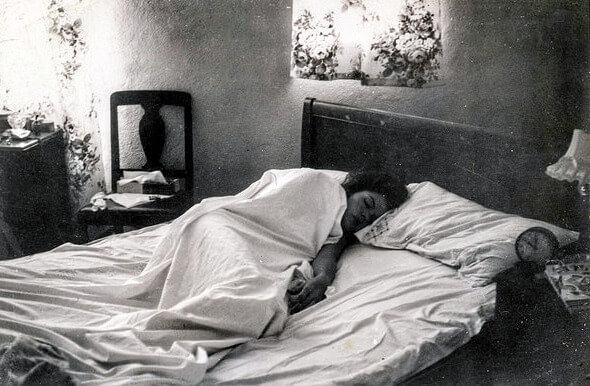
A medically-assisted heroin detox is a process that chronic heroin users undergo in a clinical setting under 24/7 medical supervision. During this process, patients are monitored and medication is administered to prevent complications and mitigate the adverse effects of cessation, also known as withdrawal symptoms.
Withdrawal symptoms occur because heroin has a high potential for dependency. Dependency occurs because of the brain’s propensity to adapt to the presence of additive substances like heroin and gradually become unable to function normally without it.
Heroin causes dependency because of its addictive properties. Moreover, when the user’s brain is exposed to heroin, it is influenced by the overproduction of neurotransmitters responsible for feelings of intense pleasure.
Under normal circumstances, these chemicals, such as dopamine, are released as the brain’s response to everyday rewards needed for survival, such as eating and sex. But when a psychoactive substance such as heroin activates neurotransmitters in the brain’s reward system, over time the user can become chemically-addicted.
Once dependency develops as a product of this addiction, withdrawal symptoms and cravings occur and often compel the person to continue using despite the negative consequences they experience as a result of their addiction.
Symptoms of a Heroin Withdrawal

Heroin withdrawal symptoms can differ depending on the person experiencing them, but there are certain core symptoms experienced by almost everyone, as well as some that are overwhelmingly common. The severity of heroin withdrawal symptoms is determined by how long an addiction has been occurring, how frequently the substances was abused, and how large a dose was consumed each time.
Physical Withdrawal Symptoms
For those trying to quit heroin, the physical withdrawal symptoms may be challenging to endure but fortunately, are very limited in duration. Such symptoms will peak then begin to subside throughout the detox process, dissipating altogether by the time the addiction treatment program is completed. Some physical withdrawal symptoms include the following:
- Headaches
- Severe cramping
- Joint pain
- Excessive sweating
- Chills
- Nausea
- Vomiting
- Diarrhea
- Muscle aches and spasms
- Uncontrollable tremors
- Labored breathing
- Hypertension
These side effects, while thoroughly undesirable, indicate that the body is detoxing—ridding itself of the substance and readjusting. Such symptoms likewise signal that recovery is underway. Moreover, these physical symptoms are often quite formidable at the outset but become increasingly more manageable as time goes on.
Typically, the most intense interval for withdrawal symptoms is between the second and fifth day after the last dose has worn off. A medically-assisted detox, which replaces heroin with an opioid such as Suboxone, may help to minimize withdrawal symptoms by blunting the otherwise sharp and intense adjustment in brain chemistry.
Psychological Withdrawal Symptoms
Compared to physical symptoms, the psychological symptoms induced by a heroin withdrawal may be more difficult to cope with as they are a long-term undertaking. In contrast to the physical withdrawals from heroin, which will subside in the short-term, some psychological symptoms may be endured for years. In addition, a recovering heroin user may suffer psychological withdrawals at random long after the detox process is completed.
Some psychological side effects associated with heroin withdrawal include the following:
- Fatigue
- Agitation
- Restlessness
- Insomnia
- Lack of focus
- Strained concentration
- Extreme heroin cravings
- Depression
- Anxiety
- Complete incapacity to experience pleasure
Heroin’s psychological side effects customarily last much longer than their physical counterparts. This is because heroin abuse itself often precipitates psychological problems, such as anxiety, depression, or bipolar disorder, which are then exacerbated by the bodily transformation that occurs after a user gets clean again.
Intense, persistent cravings are only natural while in the process of detox. However, many recovering addicts experience random heroin cravings on occasion long after they become clean. Unfortunately, these unwelcome cravings are normal and should be expected.
Some psychological ailments, like anxiety and depression, are often side effects of the heroin addiction itself. Because of this, many recovering addicts dedicate years to battle and ultimately overcome psychological problems, and random, invasive cravings threaten to sabotage all of it.
Thus, it is crucial for people pursuing sobriety to learn strategies that help conquer these temptations and prevent relapse. These techniques can be learned through comprehensive, evidence-based approaches that include behavioral therapy and can be bolstered through other aspects of long-term intensive treatment, such as counseling and group support.
How Long Is a Heroin Detox?
The time it takes for a medically-assisted heroin detox to complete is dependent on a variety of factors, including the addict’s age, overall health, and the average amount/frequency/duration of heroin use. The entire process can last several days but typically not more than one week.
The First 24-48 Hours
During the first days, possibly as early as just 6-12 hours, the user will begin to experience withdrawal symptoms such as anxiety and moodiness. Soon, nausea, diarrhea, and other flu-like symptoms will follow. During these first two days, medication in the form of opioid replacement therapy and anti-diarrheal remedies can be administered during a medical detox to improve the patient’s comfort and well-being significantly.
Day 3-5
After 72 hours or so, the severity of physical symptoms will peak and then begin to decrease in intensity. Cravings, anxiety, and sleeping difficulties may persist, but many of the worst effects will have abated by the fourth or fifth day. Medication is still very beneficial at this time.
Day 6-7
By the end of a week or so, physical symptoms will probably have passed completely, but anxiety may linger, and the user might also begin to feel depressed. It is at this time that patients should be transferred to a residential program where medication can be managed while the patient engages in customized, comprehensive treatment for the next few weeks.
Medication for Heroin Detox and Withdrawals

Our center makes use of opioid replacement therapy in the form of Suboxone, which contains buprenorphine, a partial opioid agonist, and naloxone, an opioid antagonist. When combined, these drugs make the detox process easier by lessening withdrawal symptoms and cravings during a time in which patients are especially vulnerable to relapse.
Of note, drugs for opioid replacement therapy that aid in detox should only be used under the supervision of medical personnel on a tapering schedule. This is to ensure that the patient is using the drugs properly as a bridge to total sobriety, and not for purposes that could lead to further abuse.
Next Steps After Detox
Detox is just the first step in the recovery process. After detox, patients are strongly encouraged to participate in a 30-day residential rehab program in which they are supervised around-the-clock while they engage in therapeutic activities such as behavior therapy, counseling, and group support meetings.
After rehab, many patients opt for intensive outpatient therapy, which includes many of the same services as residential rehab, but allows patients to live off-site of the center while they continue their recovery and transition back to society. Outpatients can choose to live at a private residence or in approved local sober living housing.
Our center also provides patients with aftercare planning services. Our coordinators ensure that patients can connect with other local resources outside the center for long-term medical and mental support, such as psychiatrists and counselors. We also host alumni activities for former patients that foster an ongoing team atmosphere and peer support system.
Our programs are structured with various components of evidence-based treatment practices and holistic approaches to treatment that provide our patients with the knowledge and tools they need to be successful in their recovery.
If you or your loved one is suffering from substance abuse, please seek help as soon as possible.